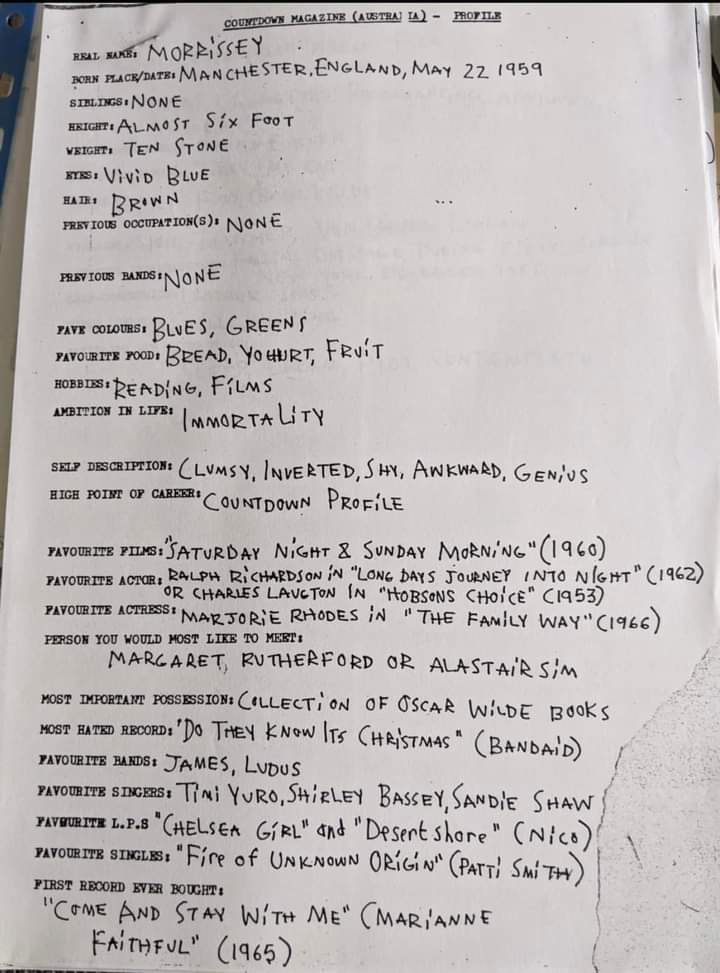A philosopher-novelist called Lars Iyer has a new book out that's set in Manchester, called My Weil.
The publisher describes the novel as 'a scathingly funny look at a group of quirky graduate students majoring in Disaster Studies who are forced to reconsider their cynicism when they confront a new student who, remarkably, has the same name as the 20th Century Catholic mystic philosopher Simone Weil …'
The writer has just put together a playlist for The Quietus, which is really a lot more that that, providing cultural commentary and astute insights into what drives Mancunian music-makers, along with the perfect selection of songs. Morrissey serves as one of the key figures for these vivid layered vignettes.
Ludus, Pete Shelley, Nico, Joy Division, New Order, The Happy Mondays, and The Passage are the other acts selected.
See the full article at https://thequietus.com/articles/33361-lars-iyer-my-weil-playlist
Lars Iyer

The publisher describes the novel as 'a scathingly funny look at a group of quirky graduate students majoring in Disaster Studies who are forced to reconsider their cynicism when they confront a new student who, remarkably, has the same name as the 20th Century Catholic mystic philosopher Simone Weil …'
The writer has just put together a playlist for The Quietus, which is really a lot more that that, providing cultural commentary and astute insights into what drives Mancunian music-makers, along with the perfect selection of songs. Morrissey serves as one of the key figures for these vivid layered vignettes.
Madchester, famous throughout the world for its nightlife, its indie-dance, its ecstasy-fuelled hedonism, seemed an absolute break from the city’s musical past. Where was the ambition? The sense of mission? Smith, Curtis, Morrissey and others were intense autodictats – ‘anti-intellectual intellectuals’ as Simon Reynolds called them, reading Nietzsche, Philip K. Dick (Smith and Curtis), Wilde, third-wave feminism (Morrissey), using literary fiction and philosophy as prompts for their lyrics. Graduates of local universities like Pete Shelley, Howard Devoto, Linder Sterling and Dick Witts wanted to channel what they learned about artistic modernism, about critical theory, into popular song. Wasn’t the intellectual and artistic ferment of New Wave, when Manchester was the capital of post-punk, what Madchester was leaving behind?...
...“These are desperate times,” said Morrissey in an interview. “But I don’t think we should join in with the desperation. We should conquer it.” That’s what he does on The Smiths’s fourth single, the title of which is a take on Sandie Shaw’s ‘I Wonder if He’s Missing Me Now’.
“I was looking for a job, and then I found a job, and heaven knows I’m miserable now / I was happy in the haze of a drunken hour but heaven knows I’m miserable now”: neither work nor leisure will please our narrator. Nor romance (“What she asked of me at the end of the day / Caligula would have blushed”).
What’s left is singing about being miserable, dreaming up variations on being miserable, affirming gloomery itself as a paradoxically joyful way of being. Morrissey takes refuge in the comedy of misery, thereby transmuting it, revaluating its value.
And on Top of the Pops in an outsize pink Evans blouse, a crystal necklace round his neck and a great bush of gladioli in his back pocket: Morrissey performs this misery, enjoying it, sharing it, offering himself up as a figure of ridicule or embarrassment (‘Heaven Knows’ was pathetically easy to parody by Smiths sceptics.)
On the Top of the Pops stage, mic-less, thin and swirling Morrissey is both playful and arch and sincere, non-miserable and miserable. This is how The Smiths sang back at that 80s aspirational culture with which so many of us felt at odds, showing how voluntary joblessness, voluntary invalidism, voluntary celibacy could be a way of living...
Click to expand...
Ludus, Pete Shelley, Nico, Joy Division, New Order, The Happy Mondays, and The Passage are the other acts selected.
See the full article at https://thequietus.com/articles/33361-lars-iyer-my-weil-playlist
Lars Iyer







